Ryoichi Arai
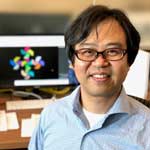 | Ryoichi Arai is an associate professor of Faculty of Textile Science and Technology and Institute for Biomedical Sciences at Shinshu University. He received his Ph.D. in chemistry and biotechnology from the University of Tokyo in 2001 (Prof. Teruyuki Nagamune lab). After working as a research associate/scientist of Protein Research Group (Prof. Shigeyuki Yokoyama lab) at RIKEN Genomic Sciences Center in Yokohama for about five years in structural biology, he joined Prof. Michael Hecht lab at Princeton University for about two years as a JSPS overseas fellow and started research on de novo protein design and engineering. After several years as a tenure-track assistant professor (PI) at Shinshu University, he was appointed as an associate professor (PI) at Shinshu University in 2016. In addition, he recently visited Prof. David Baker lab at Institute for Protein Design, University of Washington for half a year in 2019 as a visiting scholar supported by JSPS KAKENHI Grant. Currently, his laboratory works in the fields of protein design and engineering, structural biology, and synthetic biology, and especially focuses on design and engineering of self-assembling protein nanobuilding blocks. |
Mototsugu Eiraku
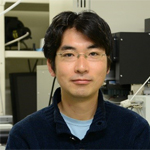 | Mototsugu Eiraku received his Ph. D. from The University of Kyoto in 2005, and joined the RIKEN Brain Science Institute as a research scientist that same year. In 2006, he joined the RIKEN Center for Developmental Biology, Laboratory for Organogenesis and Neurogenesis, where he served as a research scientist until 2010. That year, he was promoted to Deputy Unit Leader of the Four-dimensional Tissue Analysis Unit within the Division for Human Stem Cell Technology, and in 2013 was appointed Unit Leader. From November 2014, he has served as leader of the In Vitro Histogenesis Unit and from April 2015, he was appointed Team Leader of the same laboratory. In 2017, he moved to Institute for Frontier Life and Medical Sciences, Kyoto University and is currently a Professor of Laboratory of Developmental Systems. |
Takuya Hayashi
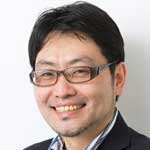 | Takuya Hayashi is currently leading his lab at Laboratory for Brian Connectomics Imaging, RIKEN Biosystems Dynamics Research. He is a neurologist/neuroscientist who has studied the dynamics of the brain function, architecture and connectivity in healthy and diseased conditions in human and non-human primates. He has made contributions in the areas of non-invasive brain imaging of human/non-human primates and uncovered the plastic mechanism of the brain particularly in Parkinson's disease, addiction, and brain injury. He is currently a principal investigator of non-human primate connectome project, supported by Japan Agency of Medical Research and Development, and is focusing on understanding the cross-species homology of the brain architecture, function and their dynamics. |
Ichiro Hiratani
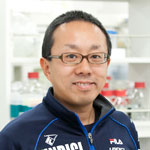 | Ichiro Hiratani is a Team Leader of the Laboratory for Developmental Epigenetics in RIKEN BDR. He received his Ph.D. in Biological Sciences from the University of Tokyo for his work on Xenopus (African clawed frog) embryonic development with Masanori Taira. He moved to the United States for his postdoctoral training with David Gilbert (Florida State University) and pioneered genome-wide analysis of DNA replication timing to explore how chromosome architecture changes during stem cell differentiation. After a brief period as an assistant professor at the National Institute of Genetics (Mishima), he was appointed as Team Leader at the RIKEN CDB (now RIKEN BDR in Kobe) in 2013. Currently, his laboratory focuses on understanding the principles of the 3-dimensional organization of the genome during early mammalian development using cutting-edge single-cell genomics technologies. |
Tadashi Isa
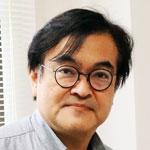 | Tadashi Isa is a professor at Department of Neuroscience, Graduate School of Medicine, Kyoto University, Japan. He is also a vice dean of the Graduate School of Medicine, Kyoto University. He earned his PhD in Medicine at the University of Tokyo in 1989 and started his research career as an assistant professor of the Institute for Brain Research, Faculty of Medicine, the University of Tokyo. He is interested in the structure and function of the neural circuits involved in the control of eye movements and dexterous finger movements, and neural mechanism of functional recovery after brain and/or spinal cord injury, especially targeting the plasticity spanning the large-scaled neural network in the CNS. He tackles these problems with multidisciplinary approaches combining brain imaging, electrophysiology, behavioural analysis, circuits manipulation with viral vectors primarily on the non-human primate model animals. He is a president of the Japan Neuroscience Society. |
Gregory R. Johnson
 | Greg Johnson is a Sr. Scientist at the Allen Institute for Cell Science and has been a member of the Modeling and Theory group since 2016. With a specialization in computer vision and machine learning applications to cell modeling. Before his graduate studies, he worked as a software developer at Amgen. He then studied under Robert Murphy at Carnegie Mellon University where he earned a M.S. and Ph.D. in Biomedical Engineering and Computational Biology respectively. His research involves developing tools to understand and model the variation of subcellular organization from fluorescent microscopy images and how this relates to gene expression and cell state changes. |
Kazuhiro Maeshima
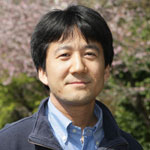 | Kazuhiro Maeshima received his Ph.D. degree from Osaka University in 1999. After working as a postdoc with Prof. Ulrich Laemmli in Geneva, Switzerland, and then as a Staff Scientist in Dr Naoko Imamoto lab in RIKEN, he joined Natioonal Institute of Genetics in Mishima, Japan, as a professor in 2009. His research interest is to know how a long string of human genome DNA is threedimensionally organized and behaved in living cells, and how the organized genome functioons during cellular proliferatioon, differentiation, and development. |
Fumio Matsuzaki
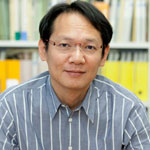 | Fumio Matsuzaki received his Ph.D. from the University of Tokyo. After a postdoctoral fellow at the Tokyo Metropolitan Institute, then at the Rockefeller University, he began genetic research on Drosophila neurogenesis in 1989 when he started his own group at the National Institute of Neuroscience in Tokyo. In 1998, he was appointed professor at Tohoku University, and then as a founding member of the RIKEN Center for Developmental Biology in 2002. He is currently a team leader of RIKEN Center for Biosystems Dynamics Research, and also affiliated with Graduate School of Biostudies, Kyoto University. He has been continuously interested in the genetic programs and plastic mechanisms working for neural development, as well as in the cell polarity and asymmetric division of neural stem cells as fundamentals of brain formation since he found the asymmetric segregation of Prospero at Drosophila stem cell division. In this line of work, his lab recently succeeded to reconstruct Par-dependent cell polarity in non-polar cells revealing how the polarity emerges in the cytocortex as two dimensional phase separation. He is currently using Drosophila, mice, and ferrets as model systems to explore the fundamental principle for neural development as well as specific mechanisms underlying the expansion of the brain size and complexity during mammalian evolution. |
Noboru Mizushima
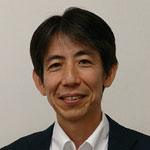 | Noboru Mizushima graduated from the Faculty of Medicine at Tokyo Medical and Dental University in 1991 and finished the resident program in 1993 in the department of internal medicine at Tokyo Medical and Dental University. Then he started his research career with studies on molecular immunology and received Ph.D. in 1996. He then moved to National Institute for Basic Biology and started works on autophagy in yeast and mammals in Dr. Yoshinori Ohsumi’s laboratory. He moved to Tokyo Metropolitan Institute of Medical Science in 2004 as a PI and started extensive studies on the physiological role of autophagy using mouse genetics, and molecular mechanisms of autophagy in mammals. He was promoted to Professor of Physiology and Cell Biology, in Graduate School and Faculty of Medicine at Tokyo Medical and Dental University in 2006, and Professor of Biochemistry and Molecular Biology at the University of Tokyo in 2012. His current research focuses on mechanisms and physiological roles of autophagy and other intracellular protein/organelle degradation systems. |
Shuichi Onami
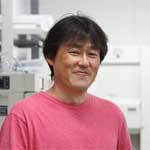 | Shuichi Onami earned his D.V.M. from The University of Tokyo (1994) and his PhD in Genetics from The Graduate School for Advanced Studies (1998). He was an associate professor at Keio University (2002 - 2006), joined RIKEN as a senior scientist at Genomic Sciences Center (2006), and became a team leader at RIKEN Advanced Science Institute (2008). He is currently a team leader at RIKEN Center for Biosystems Dynamics Research. He invented an automated 4D cell division dynamics measurement system for C. elegans embryos and pioneered quantitative modeling in C. elegans embryo. He also founded SSBD database, an integrated database for quantitative biosystems dynamics data and biological images. His current research interests include mathematical modeling of animal development, knowledge extraction from a large-scale high-dimensional biological data, and their applications to human biology. |
Matthew W. Powner
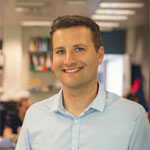 | Matthew Powner was born in Wensleydale, North Yorkshire, UK in 1981. He obtained a first class master's degree in Chemistry at the University of Manchester (2005), where he was awarded the Royal Society of Chemistry prize, the Degussa award, the Sigma‐Aldrich prize, the Glaxo prize, the Eric Braithwaite prize, the Swan prize and the Merck Sharp & Dohme award. He then completed a medicinal chemistry internship at AstraZeneca, Alderley Park, before returning to Manchester to complete his PhD (2009) and an EPSRC Doctoral Prize post‐doctoral fellowship with Prof. John Sutherland FRS. In 2009 he was awarded a Harvard Research Fellowship to work with Nobel Laureate Prof. Jack Szostak FRS at Massachusetts General Hospital and Harvard Medical School. He returned to the UK in 2011, joining UCL as Lecturer (2011‐15) and then Associate Professor (2015‐19) in the Department of Chemistry, where he is currently Professor of Organic Chemistry (2019‐present) and an Investigator of the Simons Foundation Collaboration on the Origins of Life (2013‐present). His research interests centre around chemistry associated with the origin of life and, along with his research group, has made contributions in the areas of nucleic acid and amino acid chemistry, protometabolic networks, ribozymes, lipids, crystal engineering, green chemistry, catalysis and photochemistry. Dr Powner has been awarded various prizes and fellowships in recognition of his research, including the ISSOL Stanley Miller Award (2011), the SET for Britain Roscoe Medal (2012), 1st prize in the Origins of Life Challenge (2012; jointly with Prof. John Sutherland FRS), an EPSRC Fellowship (2013), a Bürgenstock JPS Fellowship (2015), the Thieme Chemistry Journal Award (2015), a Center for Advanced Studies Fellowship (2016) and the RSC Harrison‐Meldola Memorial Prize (2019). |
Eric D. Siggia
 | Dr Siggia was trained as a physicist and worked in the areas of statistical mechanics of phase transitions, quantum magnetism, fluid mechanics and nonlinear dynamics. He moved to Rockefeller University from Cornell in 1998, and converted to biology. He collaborated on projects in the areas of protein trafficking, bioinformatics of gene regulation, evolution of antibiotic resistance, cell cycle in yeast. In the last decade he worked with Ali Brivanlou and others on dynamics of vertebrate signaling pathways and synthetic embryology using human embryonic stem cells. |
Shunsuke Tagami
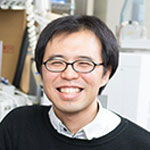 | Shunsuke Tagami is a Unit Leader in RIKEN BDR. He studied structural biology in his Ph.D. research in the University of Tokyo. Then he joined MRC Laboratory of Molecular Biology and learned RNA/protein engineering. From October 2015 he has been heading his own laboratory, which aims to engineer functional bio-macromolecules applicable in medical science and also to understand the evolutionary pathway of natural bio-macromolecules (https://www.bdr.riken.jp/en/research/labs/tagami-s/index.html). |
Vikas Trivedi
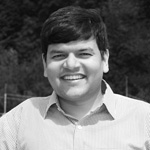 | Vikas Trivedi is a Group Leader at the European Molecular Biology Laboratory (EMBL), Tissue Biology and Disease Modelling Unit, Barcelona, Spain with a joint appointment at the EMBL Developmental Biology Unit, Heidelberg, Germany. He received a Bachelor of Technology (B.Tech) degree from the Indian Institute of Kanpur and PhD from California Institute of Technology (Caltech, Pasadena, USA). After a brief postdoctoral stint at University of Cambridge, UK, he established his own research lab at EMBL Barcelona in 2018 where his group aims to understand the self-organization of cells, fundamental to metazoan development, through comparative study of embryos and organoids that generate a global coordinate system de novo. The multidisciplinary group borrow tools from biochemistry, genetics and cell biology to approach problems of self-organization in multicellular systems and develops novel imaging systems, mathematical models and data analysis strategies based on statistical physics and image processing. Besides research, Vikas serves as the Scientific Editor for infocus (publication of the Royal Microscopical Society, UK) and has been a Fellow of Emmanuel College, Cambridge. |
David Van Essen
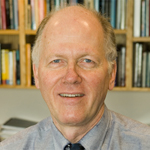 | David Van Essen is the Alumni Endowed Professor of Neurobiology at Washington University in St Louis. His laboratory studies the structure, function, connectivity, development, and evolution of cerebral cortex in humans and nonhuman primates. The lab uses neuroimaging and neuroanatomical data for these studies, acquired mainly through collaborative efforts with colleagues at Washington University and other institutions. A major emphasis is on the development and utilization of methods for computerized brain mapping as well as neuroinformatics tools that facilitate data analysis and data mining. Dr. Van Essen served as a Principal Investigator for the Human Connectome Project (HCP), a large-scale effort that acquired, analyzed, and freely shared high-quality neuroimaging data from 1200 healthy adults. He currently is a co-PI of the Lifespan Human Connectome Projects in Development and in Aging. A major focus of the lab is to use HCP and other high-quality datasets to better understand cortical parcellation and connectivity in humans and nonhuman primates. |
Sina Wittmann
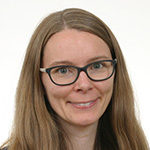 | Sina Wittmann is a post-doctoral researcher at the Max-Planck Institute of Molecular Cell Biology and Genetics in Dresden (Germany), working with Anthony Hyman and Simon Alberti since 2017. There, she combines her long expertise in transcription and RNA binding proteins with the mechanism of phase separation. She has obtained her DPhil from the University of Oxford (UK) in 2017 studying transcription termination in fission yeast. In the framework of an academic exchange program, she worked on telomerase in the laboratory of Dr Tom Cech at the University of Colorado at Boulder (USA) in 2010/2011. She obtained both her Bachelor’s and Master’s degrees from the University of Regensburg (Germany) in 2009 and 2012, respectively. There, she was conducting research on the archaeal RNA polymerase as well as various RNA binding proteins form human. |
Min Wu
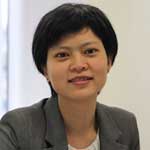 | National University of Singapore/Yale University (2020- |
Tetsuo Yamamori
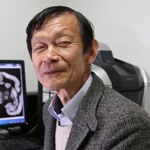 | BA (Kyoto University), Graduate course (Kyoto University), Dr. of Science (Kyoto University),
Professor (National Institute of Basic Biology), Vice Director-General of National Institute for |
Kam Zhang
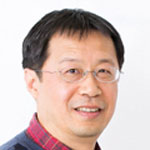 | Kam Zhang is a Team Leader of the Laboratory for Structural Bioinformatics in RIKEN BDR. His lab is developing methods for protein structure prediction, protein design, as well as drug design. His lab is also applying those methods in the creation of functional bionanomaterials and the discovery of small molecule inhibitors for therapeutic protein targets. He was a faculty member at the Fred Hutchinson Cancer Research Center, Seattle, USA. He obtained his BS in Chemistry from Peking University, China and his PhD in Physics from the University of York, UK. He did his postdoctoral training at the Molecular Biology Institute, UCLA, USA. |
Aaron M. Zorn
 | Aaron M. Zorn, PhD in an endowed Perinatal Professor at Cincinnati Children’s Hospital in the Division of Developmental Biology. He is the Director of the Center for Stem Cell and Organoid Medicine (CuSTOM) and the Associate Director of the Children’s Digestive Health Center. The goal of the Zorn Lab is to elucidate the molecular mechanisms controlling embryonic development the respiratory and digestive systems. Using a combination of animal models, cutting-edge genomics and human pluripotent stem cells the Zorn lab has made important contributions to our knowledge of the signaling pathways and gene regulatory networks governing endoderm organogenesis. This work informs our understanding of congenital diseases and the ability to generate human organoids for regenerative medicine. |